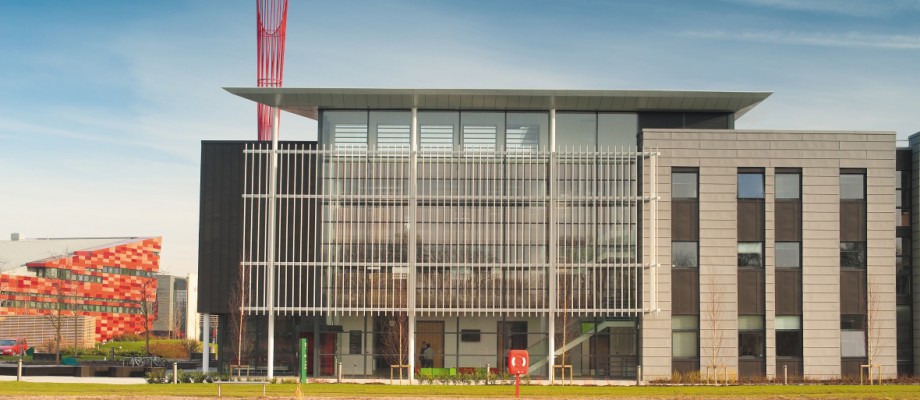
Changes in the School of Contemporary Chinese Studies
May 5th, 2016
The University is proposing changes to the way in which research and teaching on contemporary China is organised. Following a review of the School of Contemporary Chinese Studies (SCCS) as part of the integrated planning process, University Executive Board is proposing a new approach to sustain and strengthen this area of study into the future.
This is a proposal with a two-week consultation period, commencing Wednesday May 4th, 2016. Feedback and comments from staff will be co-ordinated and collated by the Faculty of Social Sciences operations team.
This reflects a shift in approach to bring the study of contemporary China into the mainstream of University research activity. It would allow our excellent China scholars to work alongside their peers in other, larger schools of the University. By encouraging interdisciplinarity, this new approach would help to build research focus in key areas of the Social Sciences, adding breadth and depth to existing areas of activity and building on our existing strengths in Chinese studies.
The University is committed to broad-based study of contemporary China. Subject to the outcome of the consultation, the proposed approach would allow the intellectual foundations of research and teaching in this area to be fully aligned with the new faculty structure – engaging with China across the whole institution rather than having a concentration in a single school.
The review proposes that academic staff currently based in SCCS be transferred into other Schools of the University aligned with their specialism. APM staff would also move as part of the organisational changes taking place within the Faculty of Social Sciences. It is expected that the largest proportion of these colleagues would transfer into Nottingham University Business School; some would move into other Schools, likely to include the Schools of Politics & International Relations, Economics and others. SCCS as a standalone school would close as of July 31st, 2016. The process would not involve any staff redundancies.
Academic staff would benefit from access to the more well-established research infrastructure that exists in those Schools, effective support mechanisms for the Research Excellence Framework, and support for excellence in education and student experience. The Schools themselves would benefit from an influx of China-related expertise, and a broader blend of research and teaching. The University would benefit from the creation of a mainstream approach to the study of contemporary China that is sustainable for the long term, in line with the principles of Global Strategy 2020.
Above all, the interests and welfare of students in SCCS is a top priority. The University is committed to all current students and will be reassuring them that they will be fully supported to complete the degrees for which they have enrolled. Current students will continue to study their courses without any change to content. Subject to the outcome of the consultation, there may be some changes to teaching venues on University Park and Jubilee from September 2016; students will be advised accordingly before the start of the 2016/17 academic session.
New first-year students due to begin their studies in Contemporary Chinese Studies in September 2016 would still do so. The same course content will be delivered, possibly with minor changes to teaching venues.
The China Policy Institute will continue to operate, as will other China-facing bodies at the University (the Nottingham Confucius Institute, the Institute for Asian and Pacific Studies and the Asia Business Centre).
The review and consultation process is being overseen by Professor Todd Landman, Pro-Vice-Chancellor for the Faculty of Social Sciences, and has been proposed by University Executive Board, the University’s senior decision-making body.
Further information will be made available in due course; in the meantime, queries and comments can be addressed to hannah.robinson@nottingham.ac.uk
Tags: China Policy Institute, Faculty of Social Sciences, School of Contemporary Chinese Studies, social sciences, structure, Todd Landman
2 Comments
Leave a Reply
Other

Need news? See you on SharePoint
After 14 years of service, Campus News is being retired as the university’s staff news platform. […]

Roads and car parks closed for refurbishing work
As part of ongoing road improvements at the university, works will be taking place to resurface […]


May 16th, 2016 at 9:26 am
mark goodridge
I am really disappointed with the way the school has handled this. Above it says that it is in the interests of the students, I really find this laughable, since the news was given right in the middle of the busiest and most stressful point of the student year. Furthermore, I fail to see why diluting the specialism of the SCCS throughout the rest of the University is going to help us, as most of us came here to study precisely because of the focus on contemporary China. I am studying Contemporary Chinese Studies with International Relations, which I see as a Chinese degree , NOT a politics degree. I will be leaving for China for a year abroad this semester, unsure about which department I am now in, and feeling completely let down by the university.
May 16th, 2016 at 1:34 pm
David Shui
I completely agree with Mark’s point. This article still fails to answer the question of ‘why’ the school is being closed down, only mentioning that they want to ‘bring the study of contemporary China into the mainstream of University research activity’. If the University were truly committed to the study of contemporary China they would allow students from more areas take the Chinese School modules. Instead they are dispersing the academics that the University has, which in my opinion will actually hinder the improvement of studies in the China field.
I also cannot see how such a large decision was supposedly made in such a small amount of time. To tell the students this during exam period, whilst making the consultation during exams is outrageous – it is as if the University does not want to hear the opinions of its students.